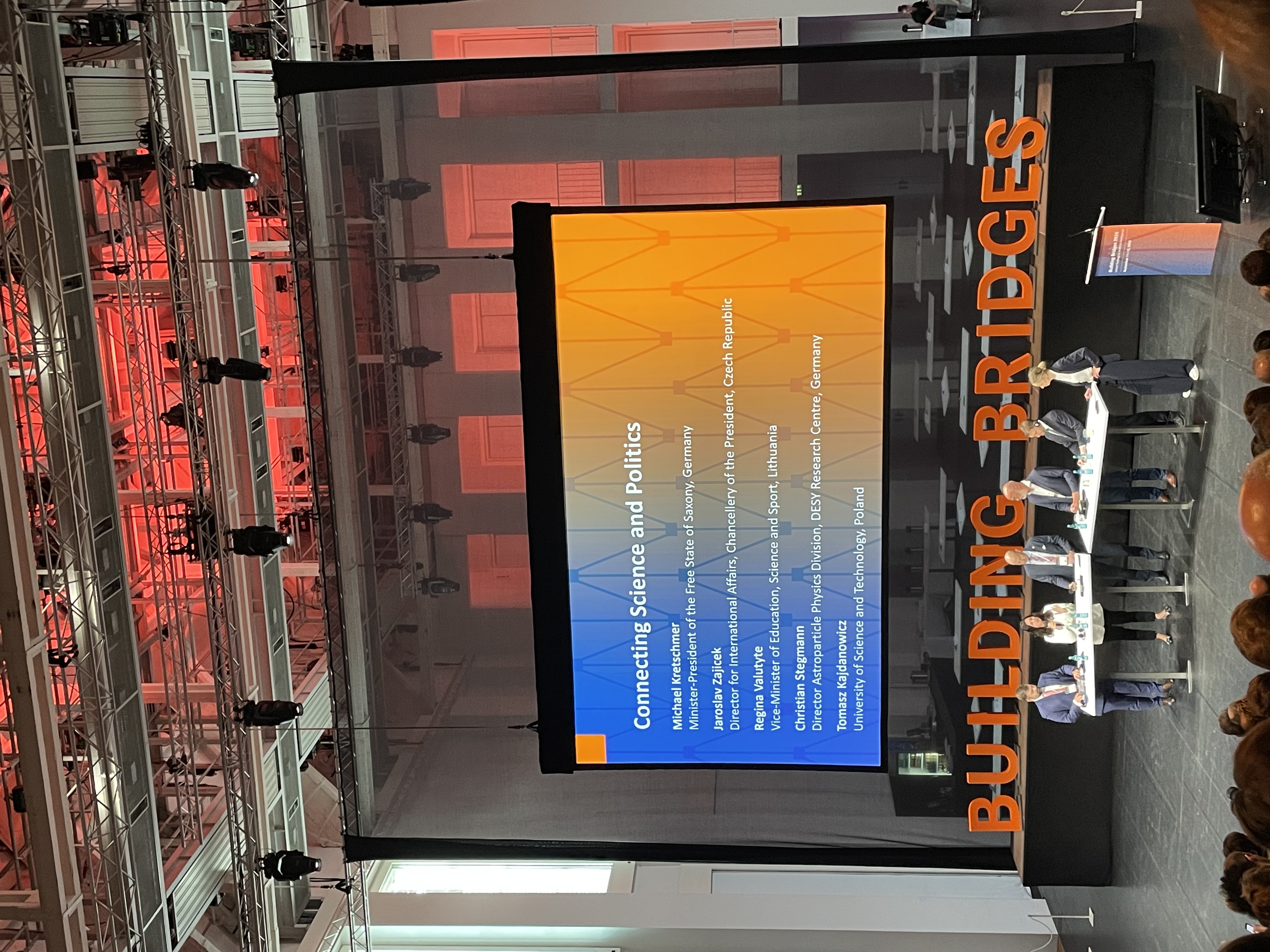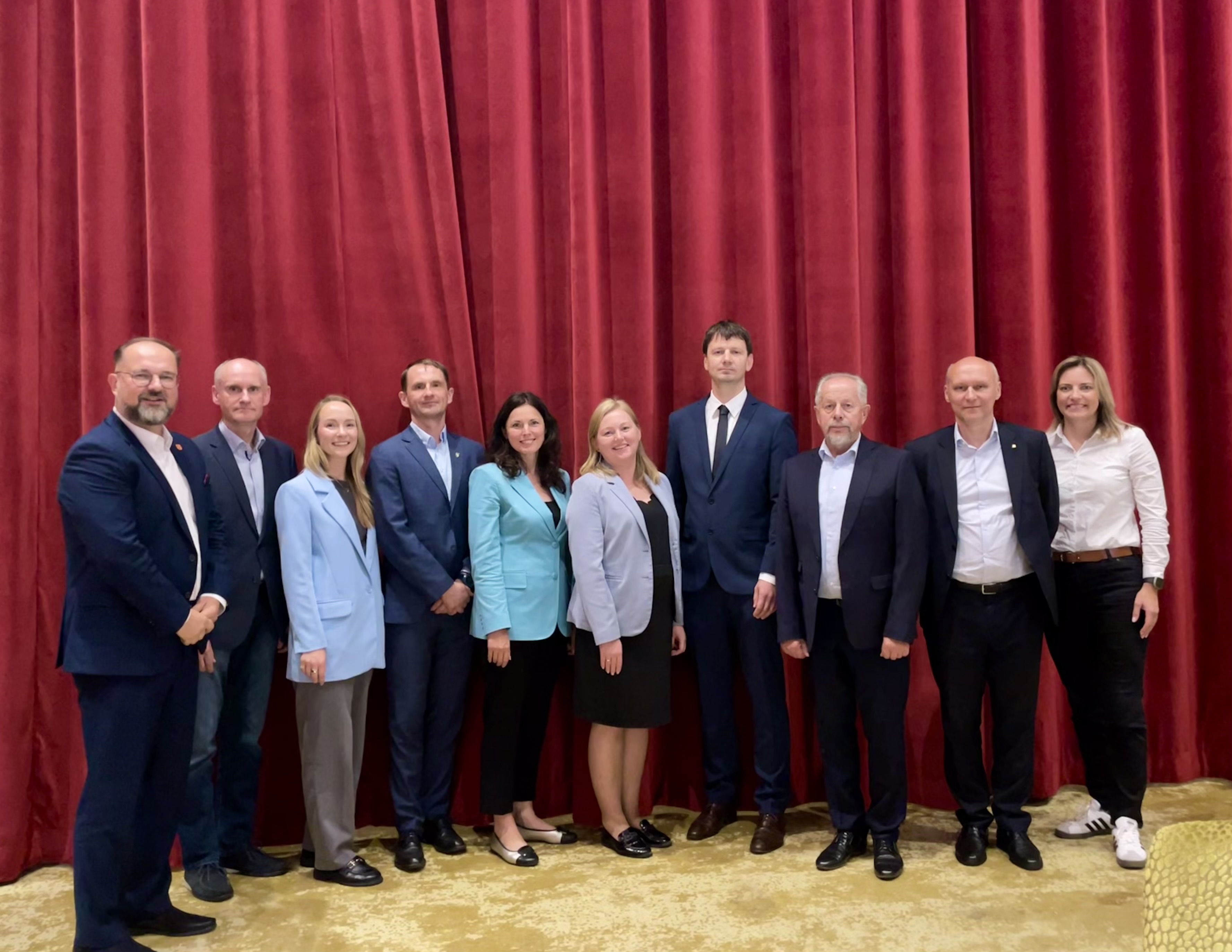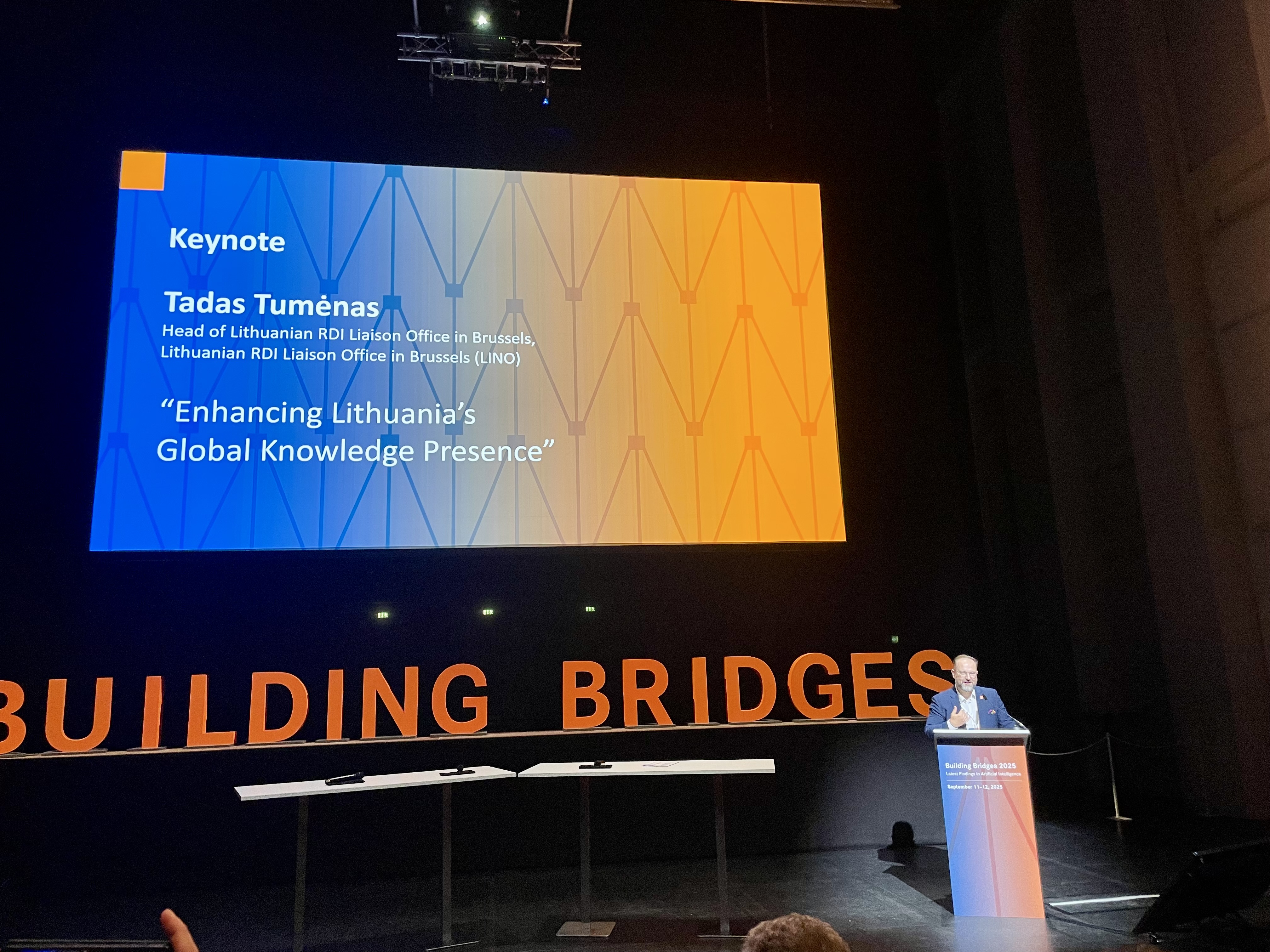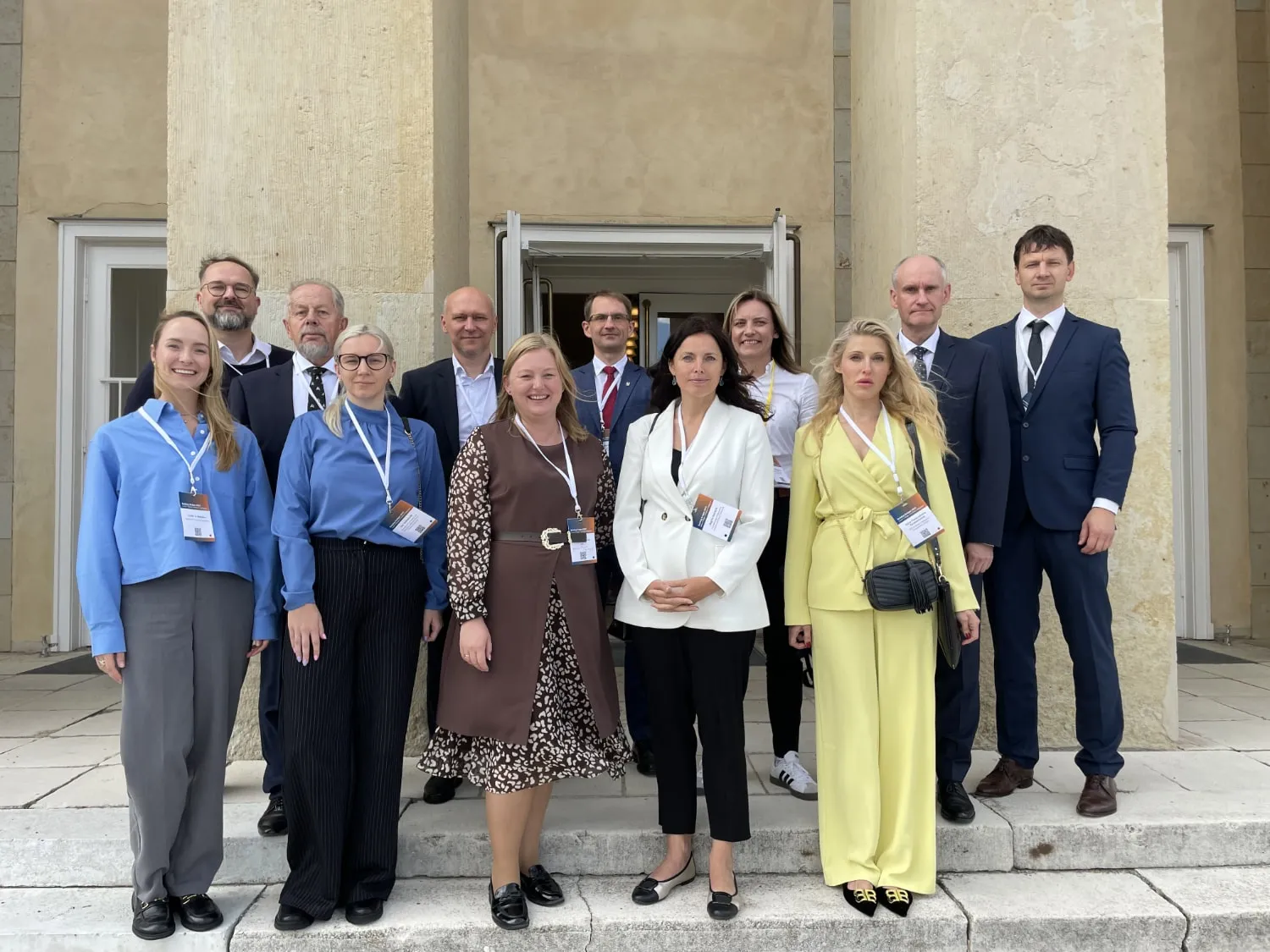
Lithuanian delegation at the “Building Bridges” conference (September 2025)
On 11-12 September, the international scientific conference “Building Bridges“ took place in Dresden, Germany. It was organized by the Saxon State Chancellery and the Helmholtz-Zentrum Dresden-Rossendorf (HZDR). The main theme of this year’s conference was artificial intelligence (AI), with Lithuania playing a special role as the official partner country. This status gave Lithuania’s research and innovation ecosystem greater visibility and created an opportunity to present our country’s achievements to an international audience. The Lithuanian delegation included Vice-Minister of Education, Science and Sport Regina Valutytė, representatives of the LINO office, the Embassy of the Republic of Lithuania in Germany, and Lithuanian universities and research institutions.
Ahead of the conference, the LINO office organized a meeting for the Lithuanian delegation, where discussions focused on national and European research policy, as well as priorities for the upcoming 2028–2034 EU Multiannual Financial Framework, with a particular emphasis on the new Horizon Europe proposal. The exchange also addressed the European Commission’s evolving perspective on dual-use technologies and their application in international projects. Another topic was researcher mobility between academia and business, highlighting the challenges of attracting specialists from industry into academia and examining how Germany and other Western European countries encourage such transitions.
During the conference, much attention was given to the role of AI in various fields – from energy and microelectronics to healthcare. In his keynote speech, Tadas Tumėnas, Head of the LINO office, emphasized that AI is not a vision of the future but already transforming our lives today. He emphasized Lithuania’s ambition to become a competitive part of the knowledge economy. The Research Council of Lithuania (RCL) plays a key role in this effort. Its mission is to ensure that Lithuania’s research and innovation system is effective, competitive, and globally integrated, thus enabling our science and innovation to establish a strong international presence. T. Tumėnas highlighted the importance of RCL’s international cooperation activities, which are crucial in making Lithuanian research and innovation both competitive and visible worldwide. At the heart of these initiatives, RCL brings the scientific community together, strengthens ties with international partners, and provides opportunities for Lithuanian researchers and innovators to engage in international projects and initiatives – from joint science-business collaborations and competitiveness centers with foreign partners to active participation in Horizon Europe, support for Ukrainian researchers, and joint initiatives with the US and Asia.
Vice-Minister Regina Valutytė also actively contributed to discussions, stressing the close ties between Lithuania and Germany, the strengths of Lithuania’s ICT sector, and the fact that AI has been one of Lithuania’s strategic priorities since 2018. According to the Vice-Minister, Europe has a real chance to compete with the US and China if it uses resources efficiently and looks for forward-looking solutions. Sebastian M. Schmidt, Scientific Director of HZDR, highlighted the importance of cooperation with Eastern European partners, noting that true value arises not only from data itself but from the impact created by it. Saxony’s Minister of Science Sebastian Gemkow encouraged young entrepreneurs to launch startups and leverage AI to ensure economic success.
Lithuanian researchers presented their latest work and achievements in thematic sessions on health, microelectronics, and energy. They shared success stories of international cooperation, established new connections with potential partners, and strengthened existing networks. In doing so, they not only showcased the practical potential of Lithuania’s science and innovation but also contributed to shaping long-term opportunities for the international development of Lithuania’s research and innovation ecosystem.
We sincerely thank all members of the Lithuanian delegation who actively engaged in the discussions and contributed to deepening Lithuanian-German scientific cooperation.




